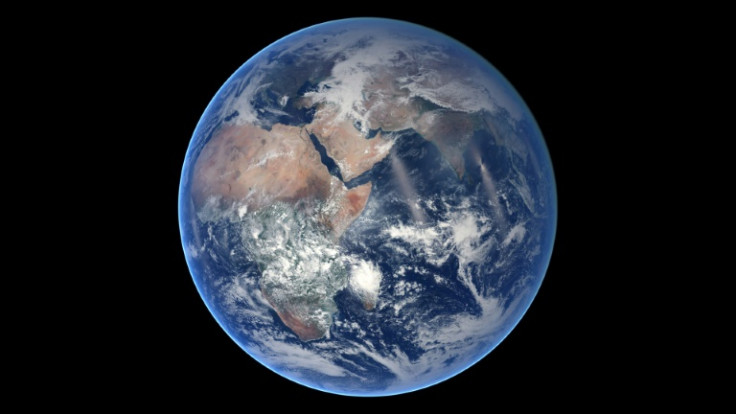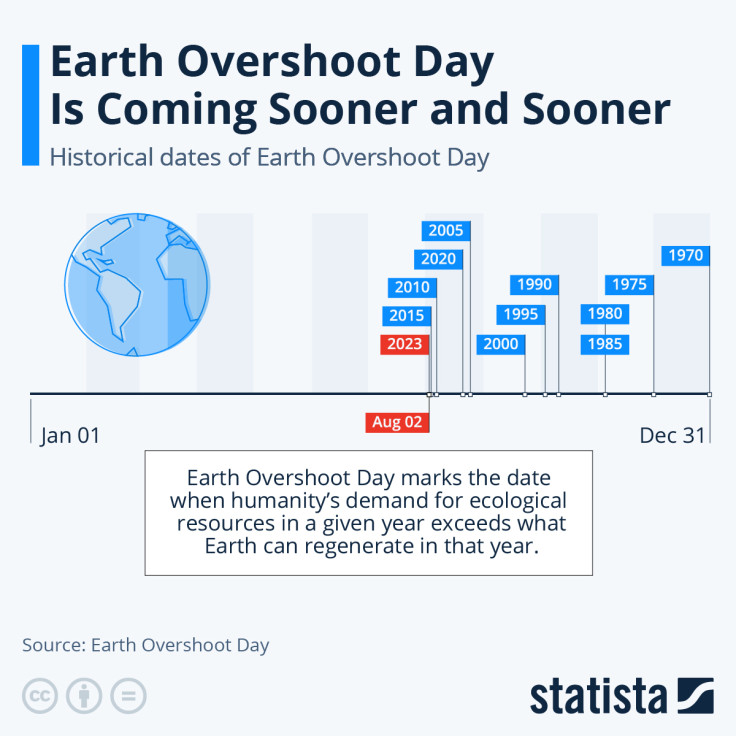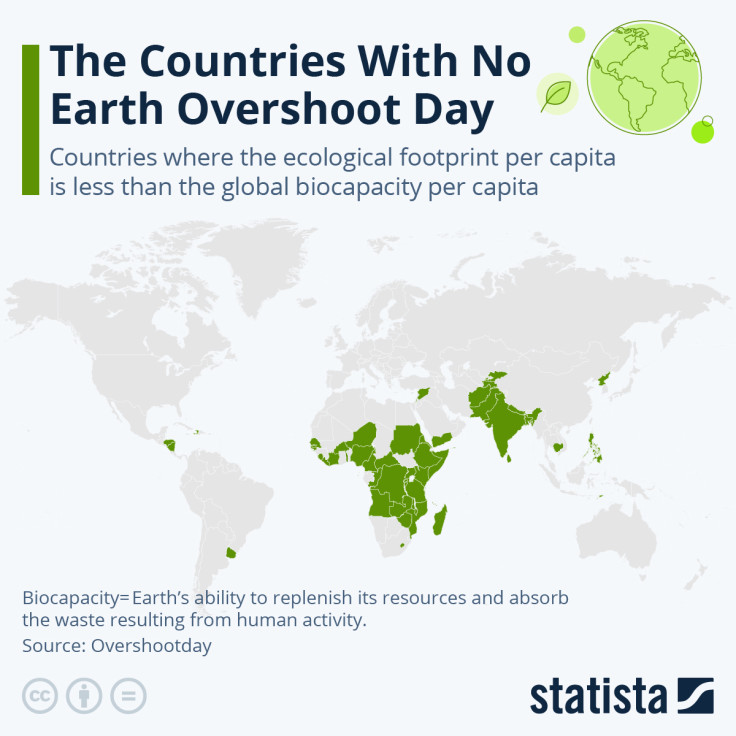What Is Earth Overshoot Day? Only 51 Countries Have Biocapacity To Cover Its Ecological Footprint

KEY POINTS
- Global Footprint Network said overshoot reduction efforts are still far too slow
- Only 51 countries have the biocapacity to sustain the population's ecological footprint
- Overshoot is calculated by factoring in how much people consume, among others
The Earth is already living "on credit" as this year's Earth Overshoot Day, or the day that humanity's demand for ecological resources surpassed the resources the world's environment can regenerate within the year, is set to be marked on August 2, one of the earliest so far in modern history, according to reports.

Non-government organization Global Footprint Network said that only 51 countries have the biocapacity needed to sustain the population's ecological footprint, and it would already take 1.75 Earths to meet the needs of the world's population in 2022.
The overshoot days, published every first of January of each year, are calculated by factoring in how much people consume, how efficiently products are made and how many people are consuming resources based on how much nature can regenerate.
At the current rate, humanity will need almost two planets to sustain the current global population.

Although the latest data from the National Footprint and Biocapacity Accounts say that the five-day delay compared to last year's July 28 may be good news, the improvement in numbers is owed primarily to improved datasets in the account's new addition and genuine advancements in ecological production amount to less than one day.
The Global Footprint Network also said that while the worldwide trend has flattened in the last five years, overshoot reduction efforts are still far too slow.
Reaching the United Nations Intergovernmental Panel on Climate Change's recommendation of reducing carbon emissions by 43% worldwide by 2030, for instance, would require moving the Earth Overshoot Day by 19 days every year for the next seven years.
"Persistent overshoot leads to ever more prominent symptoms including unusual heat waves, forest fires, droughts, and floods, with the risk of compromising food production," Steven Tebbe, Global Food Network's CEO, said in a press release.
"This underscores the interest for cities, countries, and business entities to foster their own resource security if they want to prosper. The world would benefit as well."
This year's Earth Overshoot Day will coincide with Slovenia's, and the country's minister of the environment vowed that their country would adopt the ecological footprint reduction target.
"Overshoot is a threat to Slovenia's long-term success. Therefore, Slovenia adopted an Ecological Footprint reduction target and collaborates with organizations like Global Footprint Network to achieve this," Slovenian Minister of the Environment, Climate and Energy Bojan Kumer said.
Simple changes like increasing low-carbon electricity sources from 39% to 75% would move the overshoot day by 26 days, halving food wastes would earn the Earth extra 13 days, and tree intercropping by 2.1 days.

© Copyright IBTimes 2024. All rights reserved.












